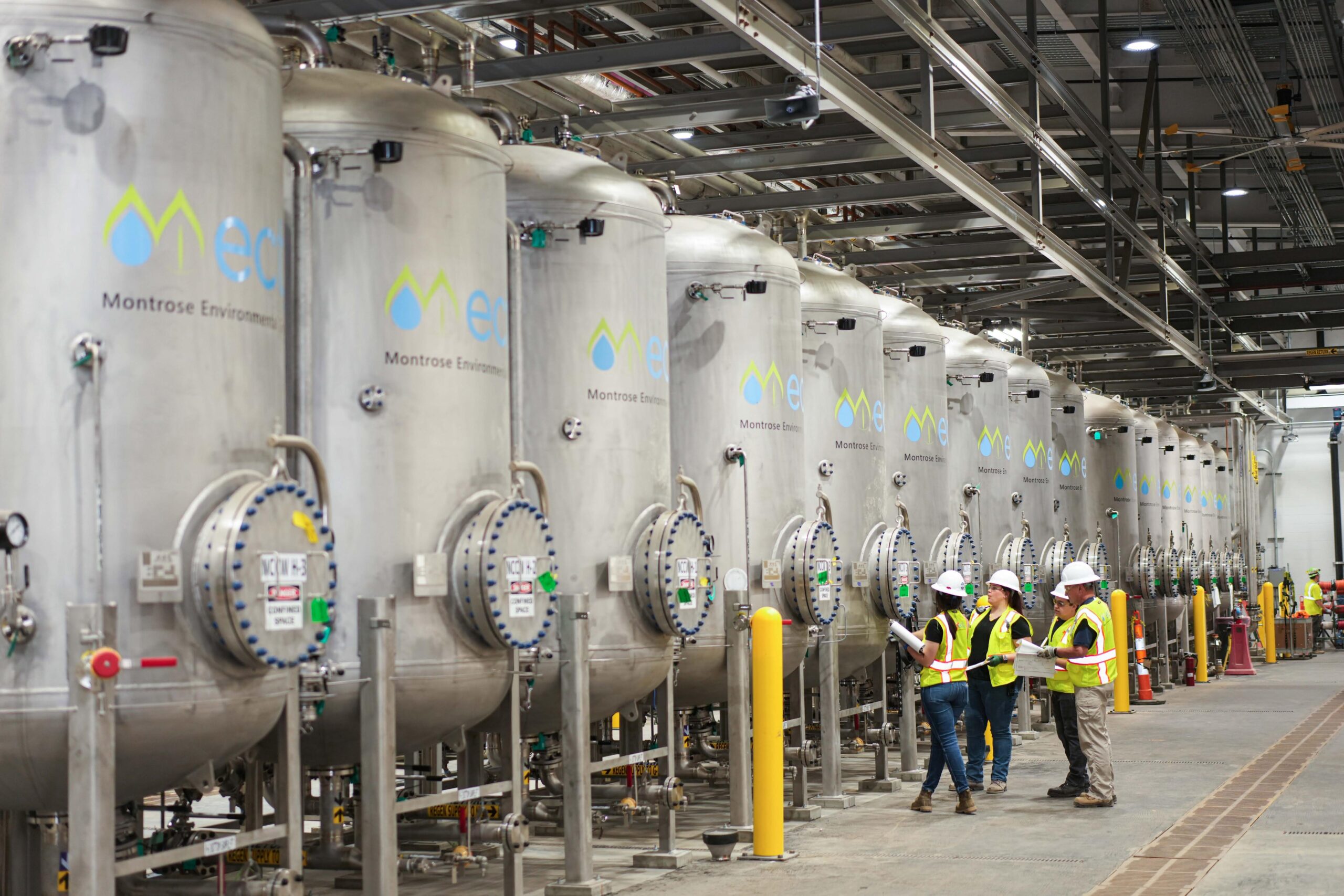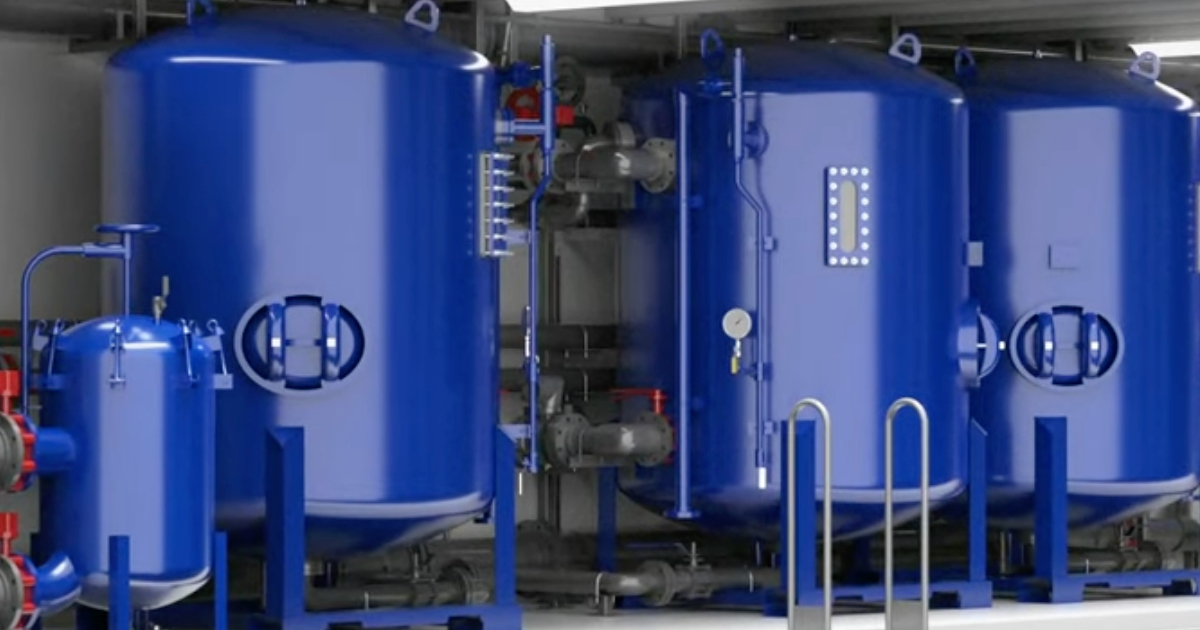Comprehensive PFAS Management in Residential Areas
Comprehensive PFAS Management in Residential Areas
Blog Article
Exactly How PFAS Treatment Makes Sure Tidy and Sustainable Water
The existence of PFAS, frequently recognized as "forever chemicals," postures significant obstacles to water quality and public health and wellness. The implications of these treatments extend past instant health advantages; they increase essential inquiries regarding long-lasting water management methods that must be dealt with to guarantee a resistant future.

Understanding PFAS Contamination
PFAS, or per- and polyfluoroalkyl compounds, have emerged as a significant ecological worry because of their widespread prevalence and perseverance in the environment. These artificial chemicals have been used in numerous commercial applications and customer items, including non-stick pots and pans, water-proof garments, and food packaging, due to their one-of-a-kind buildings such as water and grease resistance.
The contamination of soil and water sources by PFAS happens mostly with commercial discharges, firefighting foam usage, and leaching from land fills. pfas management. Once launched, these materials are immune to degradation, causing their build-up in the environment. This persistence elevates crucial issues, as PFAS can take a trip cross countries through groundwater and surface water supply, affecting alcohol consumption water products and communities

Health And Wellness Threats of PFAS
The perseverance of PFAS in the environment raises substantial wellness problems for individuals subjected to these materials. Referred to as "permanently chemicals," PFAS do not damage down easily and can gather in human bodies with time. Research study has actually connected PFAS exposure to different negative health and wellness results, including body immune system disorder, liver damage, and increased danger of particular cancers - pfas management. Significantly, studies have revealed elevated cholesterol degrees and possible effect on reproductive and developmental wellness, especially in expecting individuals and babies.
The universality of PFAS in consumer items, such as non-stick kitchenware, water-repellent textiles, and food packaging, further amplifies the threat of exposure. Consuming alcohol water contaminated with PFAS is a considerable concern, as these chemicals can leach into groundwater resources. Prone populaces, consisting of children and those living near commercial sites, may encounter heightened threats due to their creating systems and potential for higher exposure degrees.
As awareness of these health and wellness threats remains to grow, regulatory firms are starting to establish standards for PFAS levels in alcohol consumption water. Public health and wellness efforts are crucial to alleviate direct exposure and safeguard neighborhoods from the long-term impacts of these dangerous substances.

Ingenious Therapy Technologies
Exactly how can we properly take on the difficulties positioned by PFAS contamination in water resources? Ingenious therapy innovations are arising as crucial remedies in the quest for clean water. These techniques focus on the removal or damage of per- and polyfluoroalkyl compounds (PFAS), which are infamous for their persistence in the atmosphere.
One encouraging method is adsorption using advanced materials, such as activated carbon and ion exchange Learn More Here materials. These materials have shown effectiveness in catching PFAS particles from water. Another notable technology is membrane purification, which utilizes nanofiltration and turn around osmosis to different impurities at the molecular degree, hence supplying an obstacle versus PFAS.
Furthermore, advanced oxidation procedures (AOPs) use strong oxidants to break down PFAS compounds into safe by-products. This approach is specifically efficient for dealing with extremely infected water resources. Bioremediation techniques, employing specific microorganisms, are likewise being explored to deteriorate PFAS.
As study continues, hybrid systems that incorporate multiple modern technologies may offer enhanced efficiency, resolving the complexities of PFAS contamination. The development and implementation of these ingenious treatment modern technologies are essential steps toward making sure the safety and sustainability of our water resources.
Benefits of Reliable PFAS Treatment
Successfully treating PFAS contamination in water sources dramatically enhances public wellness and ecological safety. PFAS, commonly referred to as "forever chemicals," are immune to destruction and can accumulate in the human body, bring about severe wellness dangers such as cancer, liver damages, and immune system dysfunction. By applying efficient therapy methods, neighborhoods can lower exposure to these damaging compounds, inevitably enhancing the wellness results of their populations.
Moreover, effective PFAS treatment adds to the preservation of local communities. Contaminated water can adversely influence water life and interrupt the fragile equilibrium of regional environments. By making certain clean water, therapy procedures secure biodiversity and keep eco-friendly honesty.
Additionally, reliable PFAS removal can foster public confidence in water quality. When areas are assured that their alcohol consumption water is without dangerous contaminants, it promotes a feeling of security and wellness. This trust is vital for area involvement and support for ongoing water management efforts.
Future of Water Sustainability
Amid expanding problems about water high quality and shortage, the future of water sustainability hinges on cutting-edge techniques and joint efforts. As neighborhoods encounter the impending risks of impurities like PFAS, the growth of sophisticated treatment technologies is necessary. These modern technologies not only concentrate on the elimination of harmful materials however likewise promote the reuse and recycling of water, thereby lowering overall demand.
Additionally, efficient water governance plays an essential function in ensuring sustainable practices. Policymakers should integrate clinical research study with governing structures to establish clear guidelines for water usage and therapy. Stakeholder interaction, consisting of regional areas and markets, fosters a sense of shared obligation and motivates lasting techniques throughout numerous sectors.
Financial YOURURL.com investment in infrastructure is likewise crucial; updating aging systems to integrate modern-day purification and purification techniques can significantly improve water quality. Furthermore, embracing environment-friendly check out here modern technologies, such as natural purification systems, can supply environmentally friendly services.
Ultimately, the future of water sustainability depends on an all natural strategy that combines modern technology, plan, and area participation. By prioritizing these elements, we can protect our water resources for generations to find, guaranteeing clean and lasting water for all.
Final Thought
In final thought, the efficient therapy of PFAS is necessary for guaranteeing clean and lasting water. By using advanced technologies such as activated carbon adsorption, membrane layer purification, and advanced oxidation processes, areas can dramatically lower the health risks related to these contaminants. The integration of these therapy techniques supports environment security and boosts biodiversity. Inevitably, robust PFAS treatment strategies add to long-lasting strength in water administration, cultivating public count on water quality and advertising lasting practices.
Report this page